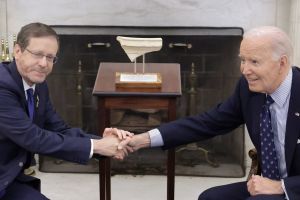Don't think about it, just do it: exercise study
NEW YORK (Reuters) - When faced with the prospect of exercising, adults should just do it; those who think about it first may end up talking themselves out of it, new study findings suggest.
"Most sport psychologists think the old pep talk works in any setting," Dr. Sandra O'Brien Cousins told Reuters Health. "Elite athletes still use this notion in motivating themselves for races, but for everyday folks, apparently you don't want to ruminate about your plan, just do it."
"Thinking about it can undermine your resolve," added Cousins, a physical education and recreation professor at the University of Alberta in Canada.
In a study of 40 randomly selected men and women, ages 42 to 77, she and her team explored adults' thoughts about exercise and their degree of participation in physical activity.
They found that while most (88 percent) of the study participants used self-talk strategies, the most important strategy for those who regularly participated in physical activity was to just start exercising, rather than talking to themselves about it first.
Of the four groups of study participants, including men and women aged 40 to 55 years, and those aged 56 and older, the baby boomers were the most active during work and leisure time, as expected. Yet, their levels of leisure-time physical activity were "somewhat sub-optimal," the researchers report in the journal, Psychology of Sport & Exercise.
Middle-aged women, who were among the most active, employed confident self-talk strategies, describing exercise as "a necessary evil" and focusing on its benefits. These women were self-motivated, and did not depend on anyone else to make them exercise.
Middle-aged men, on the other hand, were less self-motivated, often saying things like, "we should be doing this," the authors say, and when they mentioned specific activities it was often things "they cannot actually do, do not enjoy, and by virtue of the exertion, do not actually want to do."
Elderly women reported procrastination forms of self-talk as well as simply telling themselves that they "can't" exercise or "might not feel like it." In addition, some said they were not sure how much to do due to their declining health.
Older men believed they should be more active, but they did not seem to understand how they could benefit from the increased physical activity considering their health and limited longevity.
Thus, awareness of the value of exercise does not always translate into action, according to the study findings. Baby boomer men, however, who are aware of their need to exercise may be the most open to messages promoting increased physical activity, "such as, 'Just do it' or 'Don't think about it,"' the report suggests.
Such messages "may be all that is needed to trigger adults who are already seriously contemplating how to increase their physical activity," the researchers conclude.
Once men and women are motivated to begin exercising, however, Cousins advises them to "pick activities you want (and) love to do, recruit a companion and make a date, stick to the plan or have a contingency lined up and enjoy yourselves."
SOURCE: Psychology of Sport & Exercise, May 2005.




























